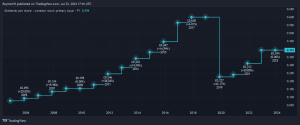What is brokerage cash?
Brokerage cash is the amount of uninvested cash in your investment account. It’s a top-line number, meaning it does not factor in unsettled trades or margin collateral, and so it’s possible not all of the cash is available to invest or withdraw.
Cash can accumulate in a brokerage account for a variety of reasons — maybe you just transferred funds from your bank account, received a dividend or interest payment or you decided to sell some stock. If you use an online broker like Robinhood to place trades, this amount of uninvested money in the account is referred to as “brokerage cash.”
Brokerage cash vs. buying/purchasing power
Other brokers may call brokerage cash by a different name, such as “uninvested cash” or even “cash available to invest.” Broker-specific terminology aside, it’s important to understand that brokerage cash is a top-line figure, not a bottom-line amount.
Brokerage cash reflects the total amount of cash in the account before subtracting things like unsettled trades or collateral for a margin loan. So if you see a large sum of brokerage cash in your account, be aware that this amount may not all be available for reinvestment or withdrawal. Your purchasing power (Robinhood and others call it buying power) does take such obligations into account and is the true reflection of the cash you have access to at that moment.
For example, say you own a brokerage account with $10,000 invested in various stocks and you don’t have any margin loans. If you had zero cash in the brokerage account and you decided to sell $2,000 worth of stock, your brokerage cash would increase from $0 to $2,000 on the day you placed a trade (assuming no additional trading costs or commission). Most stock trades settle two business days after the trade is placed. So, even though your brokerage cash increase is reflected immediately, your purchasing power would remain at $0 until the trade has settled.
Does brokerage cash earn interest?
When you open a brokerage account, many firms will allow you to select a cash management program. Your broker may refer to this as a “cash sweep,” meaning that they will automatically take uninvested cash received from deposits, dividends or interest payments and “sweep” that money into an affiliated bank account.
While these programs do earn interest, most of them offer rates no better than you might see for a bank savings account. In fact, it is not uncommon for cash in a brokerage account to earn 0.01% APY — meaning that $10,000 in brokerage cash would earn approximately $1 per year. Some firms offer a higher interest rate for larger deposits, but these “preferred” accounts typically sit well below 1% APY.
Cash management programs in the brokerage space will often have FDIC insurance, so you can rest easy knowing that your brokerage cash is safe. However, investors looking for growth on that cash might be best suited to look for options outside of a cash sweep deposit program.
How to use your brokerage cash
In a low-interest/high-inflation environment, you’re effectively losing money in a savings account or cash sweep program each year. If you’re looking for ways to get more out of your brokerage cash, some options include:
-
Invest or reinvest for the long term. If you don’t need to access your cash immediately, and you’d like to target some longer-term growth, you could invest your brokerage cash in different stocks, bonds or ETFs.
-
Buy shorter-term bonds or CDs. Fixed-income securities offer more safety in the short term, as they are typically less volatile than the stock market. While they may offer better interest rates than a cash sweep program, you’re effectively “locking up” those funds for the duration of the bond or CD, and accessing your cash prior to maturity may result in losing money on your investment.
-
Pay bills. Some brokerage firms allow you to pay bills directly from your brokerage account using your available cash.
-
Move it back to your bank account. Once your cash has settled, you can transfer it back to your bank account to address other needs you may have.
-
Leave it alone. If there’s a chance you’ll need to access the cash and you don’t want to take on additional risk, you can leave it as brokerage cash. Some investors like to keep a portion of their portfolio in cash as “dry powder” — meaning they are waiting for a dip in the market to buy securities at lower prices.
When investors look for options with more growth potential, there is usually additional risk involved. Before making a decision, consider your time horizon and tolerance for risk. Consulting with a financial advisor can help you understand which options might be best for you.
Tax considerations on brokerage cash
Brokerage accounts (also known as taxable accounts) are different from retirement accounts like IRAs or Roth accounts because they do not offer any tax advantages — in other words, any realized gain on your investments will likely be subject to capital gains taxes. If you notice a large sum of brokerage cash in your account, you might consider speaking with your accountant before reinvesting to make sure you don’t need some of that cash to cover your tax bill.
This post was originally published on Nerd Wallet







